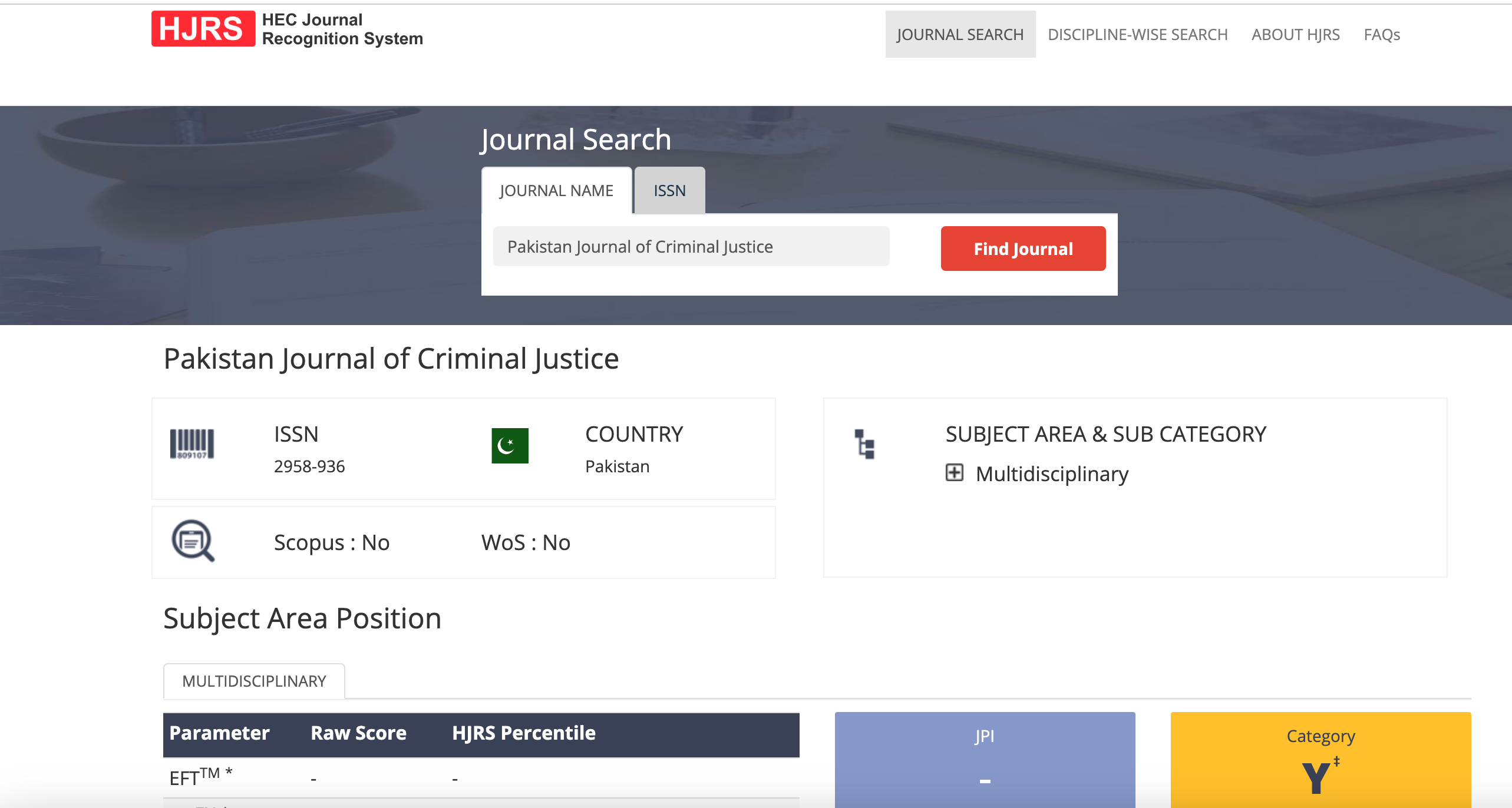Examining the Extradition Process in Pakistan: Insights from the Extradition Act of 1972
DOI:
https://doi.org/10.62585/pjcj.v4i2.95Keywords:
extradition, justice system, pakistan, implicationAbstract
The Extradition Act of 1972 in Pakistan stands as a crucial piece of legislation governing the extradition process within the country. This research article delves into the legal intricacies and procedural frameworks outlined in the Act, highlighting its significance in the context of international extradition requests. The study examines key definitions such as fugitive offenders, distinctions between foreign and treaty states, and the principles of cooperation under the Act. Furthermore, it analyses the process of extradition both to and from Pakistan, detailing the rules, procedures, and challenges faced by Pakistani authorities in handling extradition requests. The article also explores principles like double criminality, political victimisation, and the right to a fair trial, shedding light on the complexities involved in extradition cases. Through a comprehensive analysis, this research aims to provide a nuanced understanding of the Extradition Act of 1972 in Pakistan and its implications for the extradition landscape.
Downloads
Published
How to Cite
Issue
Section
License
Copyright (c) 2024 Faiza Rafique

This work is licensed under a Creative Commons Attribution-NonCommercial 4.0 International License.





